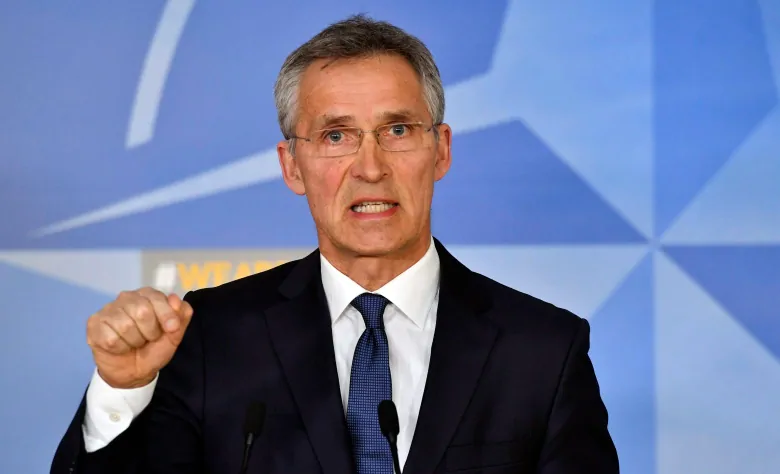Canada’s new top military commander had an international debut of sorts on Wednesday as Admiral Art McDonald attended, via video conference, a meeting of his NATO counterparts.
The military alliance’s chiefs of defence staff meet on a regular basis and the event was the first for McDonald since he assumed command earlier this month.
The discussion was also significant in light of the change in leadership in Washington and the Biden Administration’s pledge to reinvigorate ties with allied nations.
McDonald, in a Tweet, said “mutual cooperation and understanding is at the heart of the Alliance,” but offered no further remarks on the substance of the meeting.
NATO Secretary General Jens Stoltenberg spoke with U.S. President Joe Biden on Tuesday in a relaxed, friendly discussion that was carried on NATO’s YouTube channel.
The chat was a stark contrast to some of the free-wheeling, tense and unpredictable media appearances Stoltenberg had with former president Donald Trump, who routinely questioned the value and expense of the alliance.
“We’ve got a mountain of work to do ahead of us, from tackling COVID, to climate, to the security challenges,” Biden told the secretary general. “I intend to rebuild and re-establish our alliances, starting with NATO.”
The words and reassurances were echoed in Stoltenberg’s opening remarks to the defence chiefs on Wednesday. He said he was looking forward to working with Biden because “the U.S. and Europe are safer standing together.”
Push for increased defence spending
Under Trump, the U.S. made it a priority to push other NATO nations to spend more on defence and take a greater share of the collective defence burden.
In a sign that pressure is not going away, Stoltenberg told the defence chiefs that allies should remain committed to increased military spending, investments in modern capabilities and a higher state of readiness for existing forces.
It is a tall order in light of the budget-busting deficits being run by western governments because of the coronavirus pandemic.
The Liberal government in Canada has said throughout the crisis that its military spending plans, carved out almost four years ago in its defence policy, are safe from the budget axe.
Stoltenberg also said, significantly, that he will present recommendations on how to equip NATO for the future when allied leaders meet in Brussels later this year.
And he underlined that he wants NATO to take on a more global approach and work closely with democracies in the Asia-Pacific region.
The North Atlantic alliance, which was founded to counter Soviet expansionism in Europe, has increasingly over the last few years grappled with the rise of a more assertive China on the world stage.
‘A return to treating allies like allies’
A defence analyst said it wasn’t hard to spot the lighter mood in the call between Biden and Stoltenberg.
“Relief and excitement were the two major emotions — almost palpable — on the call between the Secretary General and President Biden,” said Robert Baines, president of the NATO Association of Canada, a non-governmental organization based in Toronto.

“The call reminds us just how frayed the tone of the U.S.-NATO relationship has been. None of the statements from the President would have been extraordinary without the context given to them by the past four years.”
Baines noted Biden’s commending of Stoltenberg’s “personal diplomacy” over the last few years.
“That was no doubt meant to give Mr Stoltenberg some credit for his handling of President Trump,” he said.
Biden’s remarks are significant for Canada because throughout the Trump years the United States often took unexpected unilateral action without consulting allies, Baines added.
“Over the past several years, from the withdrawal of U.S. troops in Syria to the assassination of Iranian Gen. Qasem Soleimani, the United States under President Trump was not one that consulted, or even warned, its allies,” he said.
“On more than one occasion, Canada was left in the lurch because of unilateral action by the United States when our Canadian soldiers were on the ground and potentially in harms-way. President Biden’s comments suggest a return to treating allies like allies.”




